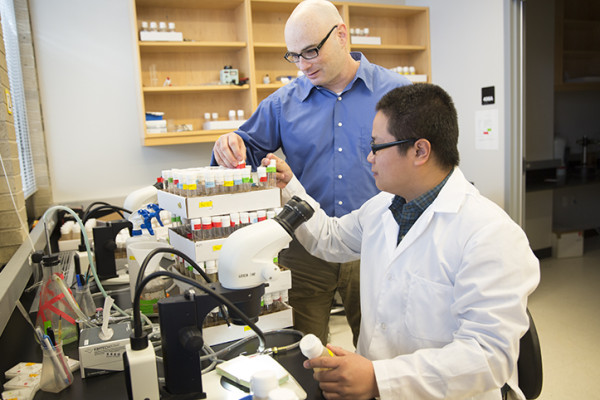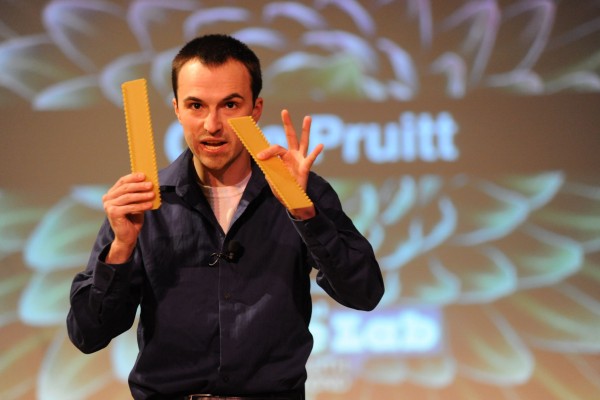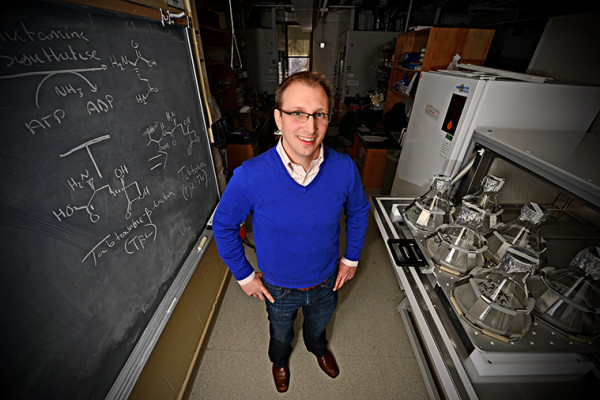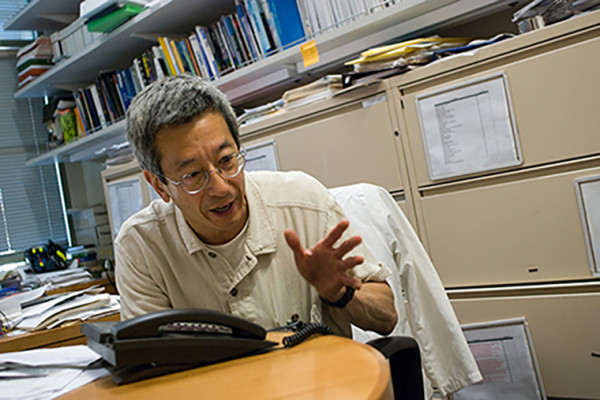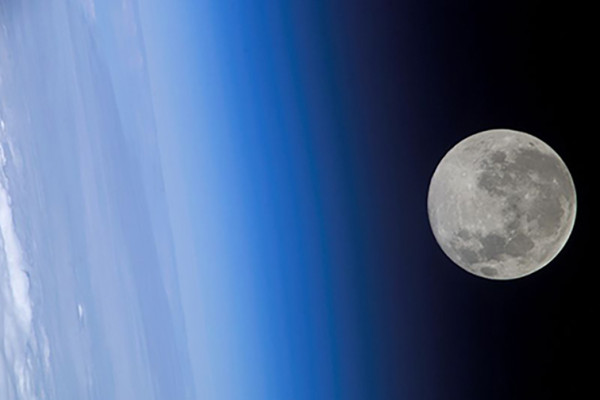A novel mechanism for fast regulation of gene expression
Yehuda Ben-Shahar and his team at Washington University in St. Louis have discovered that some mRNAs have a side job unrelated to making the protein they encode. They act as regulatory molecules as well, preventing other genes from making protein by marking their mRNA molecules for destruction.
Stand-up science
The St. Louis FameLab, a science communication competition sponsored by National Geographic and NASA, recently gave young scientists a chance to present their science to nonscientists in three minutes. Efforts such as this are becoming increasingly common as scientists try to reconnect with the public. Some universities now require three-minute video presentations for every thesis or dissertation — or even for every published journal article.
Daylight savings offers no savings, poses health risks, expert says
People often feel draggy the day after they have to set
their clocks forward in the spring but often shrug off that feeling as
trivial. In fact, says Erik Herzog, PhD, a neuroscientist at Washington
University in St. Louis, who studies biological clocks, jamming our
biological clocks into reverse, as daylight savings time does, has
serious consequences.
New drugs for bad bugs
Washington University in St Louis chemist Timothy Wencewicz says we’ll stay ahead of antibiotic resistance only if we find drugs with new scaffolds, or core chemical structures. One promising candidate, an antibiotic made by a bacterium than infects plants, caught his attention because it contains an “enchanted ring,” the beta-lactam ring that is found in penicillin. In this drug candidate, however, it acts against a different target than the penicillins.
2014 Leopold Marcus lecture by Nobel laureate
Roger Tsien, one of three chemists who won the Nobel Prize in Chemistry
in 2008 for the discovery and development of green fluorescent protein, will give the Leopold Marcus lecture at Washington University in
St. Louis. His talk, “Fluorescent Molecules for Fun and Profit,” is intended for a general audience and will take place at 4 p.m. Wednesday, March 12, in the Laboratory Sciences Building, Room 300. The talk is free and open to the public.
Earth and moon’s origins are topic of 2014 McDonnell Distinguished Lecture
The McDonnell Distinguished Lecture this year will describe current understanding of the formation of the solar system, particularly its mix of rocky planets, gas giants and icy planets. The part of the story we have not nailed down, says speaker Alex N. Halliday, PhD, of Oxford University, is the origin of Earth’s moon. The lecture, which takes place at 7 p.m. Wednesday, March 5, in Whitaker Hall, Room 100, is free and open to the public.
Patti wins Sloan Research Fellowship
The Alfred P. Sloan Foundation announced Feb. 17 that
Washington University in St. Louis’ Gary Patti has been awarded a 2014 Sloan Research Fellowship.
He is among 126 outstanding U.S. and Canadian researchers selected as
fellowship recipients this year. Awarded annually since 1955, the
fellowships are given to early-career scientists and scholars whose
achievements and potential identify them as rising stars, the next
generation of scientific leaders.
Students win international University Physics Competition
A WUSTL team learned last month that they had won the Gold Medal for their analysis of a problem during the international University Physics Competition, held in November. Using the principles of physics, they predicted characteristics of an animal on an extraterrestrial planet.
Putting the squeeze on rocks
WUSTL geologist Philip Skemer has built a custom-made rock-formation appartus that traps a rock sample between tungsten carbide anvils about a
quarter inch in diameter within a 100-ton hydraulic press and then twists the sample slowly from below. His target pressure is six giga-pascals, the pressure 250 kilometers down, to
the base of the tectonic plates. He will use the apparatus to determine through experiment the mechanisms that lead mantle rocks to flow, dragging the tectonic plates with them.
Skemer will use NSF CAREER award to understand rock flow in Earth’s mantle
Philip Skemer, PhD, assistant professor in the department of earth and planetary science in Arts & Sciences at Washington University in St. Louis, has won a prestigious Faculty Early Career Development Award (CAREER award) from the National Science Foundation. He will use the award for a series of experiments in which rock samples will be deformed at the extreme temperatures and pressures they encounter along the boundaries where plates collide.
View More Stories
